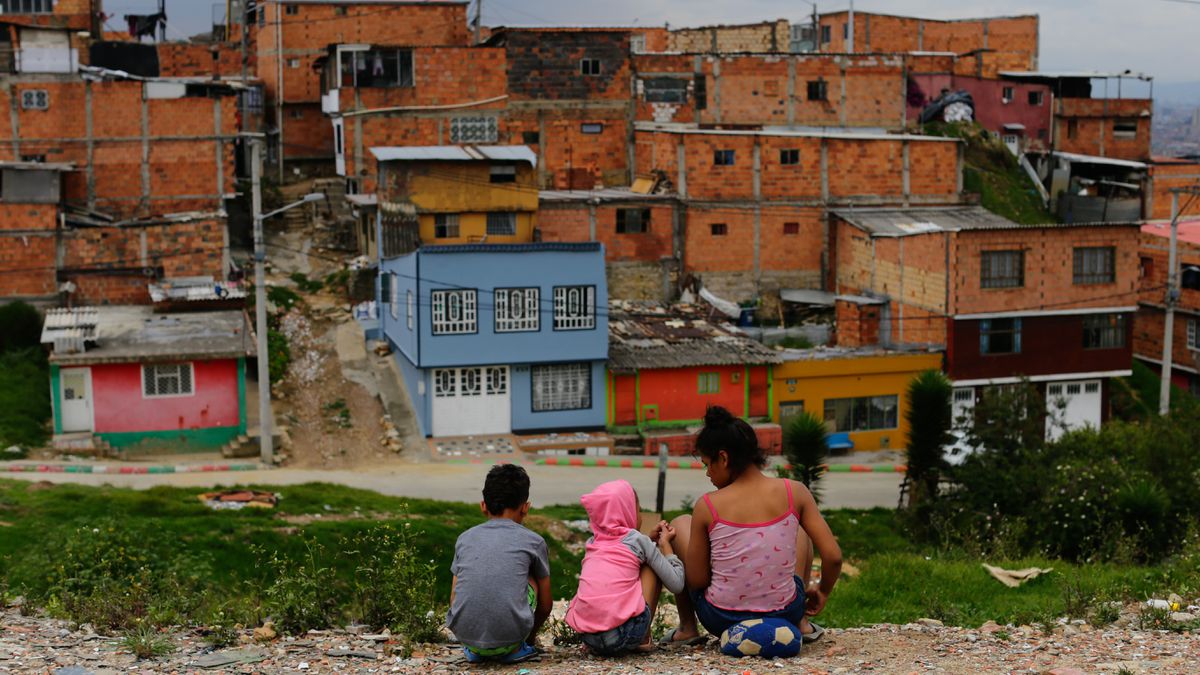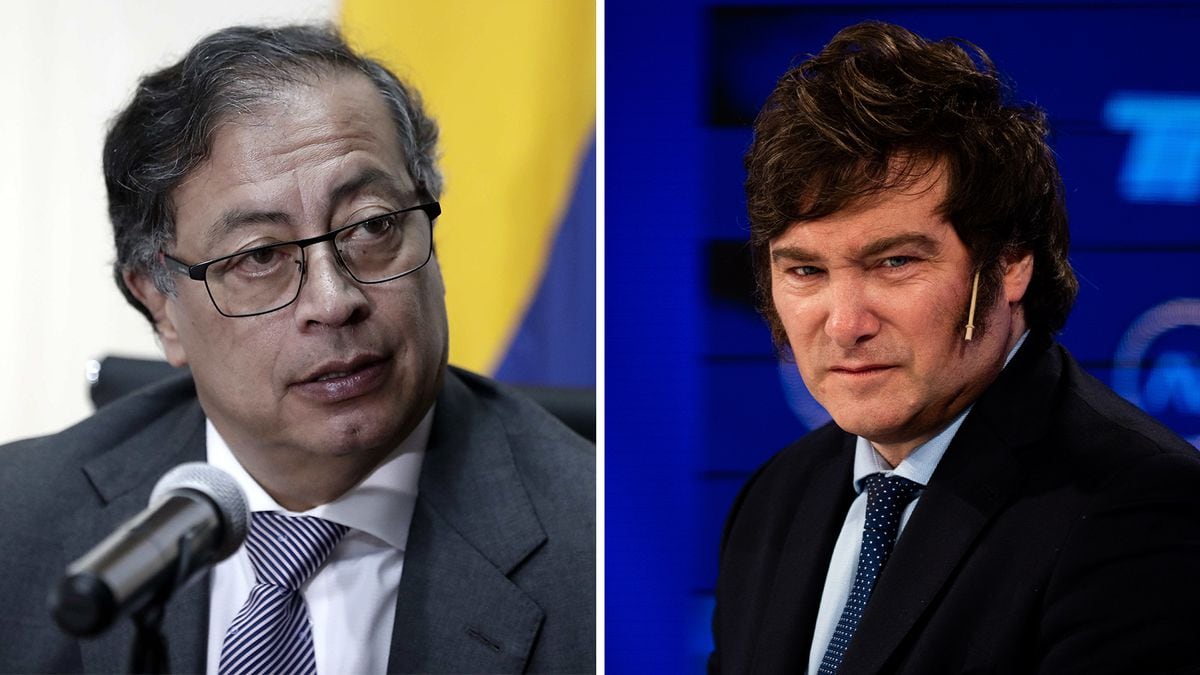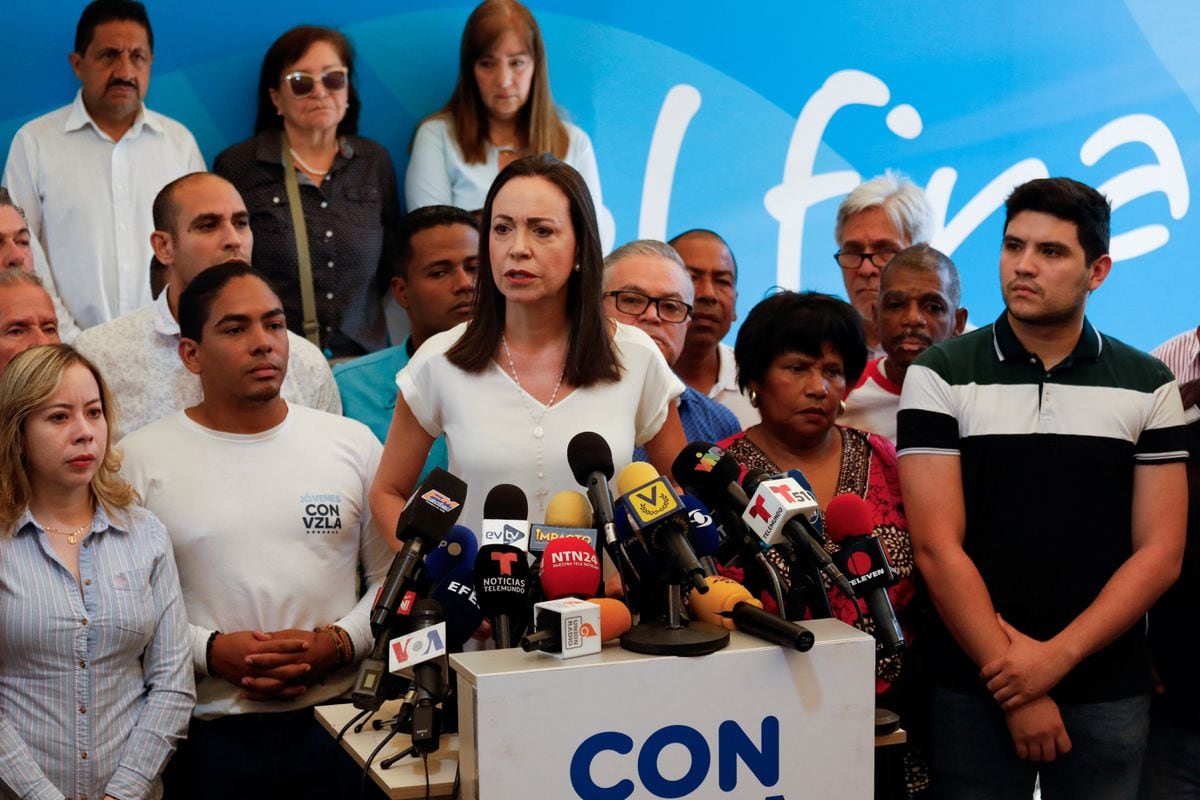Pedestrian crossing on the Simón Bolívar International Bridge, between Cúcuta and San Antonio del Táchira, on July 1, 2022. Santiago Mesa
The expected commercial reopening of the border between Colombia and Venezuela is imminent.
A month after Gustavo Petro takes office as president, on August 7, relations between the two countries, broken since 2019, are already enjoying a kind of thaw.
Colombian businessmen staged it this Monday in San Cristóbal, on the Venezuelan side, where they returned as they had not done for a long time.
Its purpose was to echo the clamor of the communities on both sides to restore the passage, after years of irreconcilable differences during the Government of Iván Duque.
It took Petro just a few days as president-elect to speak with Nicolás Maduro and confirm that he intends to open a porous border on which illegality has been imposed for a long time.
The Venezuelan, for his part, has shown his willingness to "restore normality."
The approaches of different sectors have taken place faster than anticipated.
The "Border Agreement" meeting, which was attended by EL PAÍS, was organized by the largest employers' association in Venezuela, Fedecamaras, through its sectional office in the state of Táchira, together with the Interunion Committee of Norte de Santander.
"We have to make up for lost time," requested one of the hosts, Carlos Luna, president of the Interunion Committee, in his speech.
The two countries share a border line of more than 2,200 kilometers, the scene of successive diplomatic crises.
The message for this Monday, Luna stressed, is to recover the routines of border life, so that it stops generating fear, insecurity and fears, so that it once again becomes a border of opportunities.
The crossing has been closed to the passage of vehicles since August 2015 by order of Maduro, who had previously expelled thousands of Colombians, forced to cross the Táchira River with their waxes.
These tensions have worsened since February 2019 due to the failed attempt by the Venezuelan opposition, led by Juan Guaidó, to bring food and medicine through the border bridges.
Maduro described that episode as an attempted "invasion" and decided to completely break off relations, while Duque has been the main promoter of the "diplomatic siege" on Hugo Chávez's heir.
The motley Colombian delegation, more than 60 people including politicians, businessmen and union leaders, met since morning at the mouth of the Francisco de Paula Santander International Bridge, in Cúcuta, all with their rosette around their necks, to cross walking together.
On the other side, they boarded the two buses that, escorted by members of the Bolivarian National Armed Forces, entered some roads that wind through the mountains to climb more than 500 meters in the 50 kilometers that separate the border from San Cristóbal, the capital. of the Táchira state, one of the Andean cities of the Caribbean Venezuela.
Installations and landscapes passed through the windows that in other times were familiar to the inhabitants of Cúcuta, but today they are distant memories.
They looked through the windows at the Táchira sugar mill, which originally belonged to Colombian businessmen and was expropriated in 2010 by the Chávez government, or at the Juan Vicente Gómez airport in San Antonio del Táchira, which has been closed for nine years.
Also the outlet on the Venezuelan side of the Tienditas international bridge, a modern facility whose time has finally come.
Already in the Lidotel of San Cristóbal, the speeches full of optimism followed one after another, raising expectations about the new era that opens with the arrival of Petro to power.
"As of August 8, the border between two brother towns will be fully open and will never be closed again," proclaimed Gabriel Becerra, elected to Congress by the Historical Pact, the left-wing coalition that now has the largest bench.
"We are doing the integration to improve social indicators," claimed the economist Germán Umaña Mendoza, president of the Colombo-Venezuelan Chamber and part of the joint team, pointing to the high unemployment and poverty figures in Cúcuta.
He agreed that on August 8, the day after possession, the transport of merchandise will pass.
Among the Venezuelans, the central speech was that of the governor of Táchira, Freddy Bernal, who exultantly recognized that it was a symbolic event but the message was clear for both countries.
"Although the border was formally closed, it was never fully closed," he said, because "it is impossible to close it."
In his words, he launched several darts at President Duque, whom he pointed out to "play to start a civil war in Venezuela" with his unrestricted support for Guaidó.
"If Venezuela has managed to grow with an almost total economic siege, new perspectives are coming," said Bernal, recalling that the country will grow 5% this year, according to projections by the United Nations Economic Commission for Latin America and the Caribbean. (ECLAC).
On the margins, all kinds of topics related to business or integration were discussed.
From the mineral reserves that Venezuela has, to the various long-delayed news that now seems just around the corner, such as the eventual return of the flights of the Colombian airline Avianca, or the opening of the long-awaited Caracas-Cúcuta route. .
“In Venezuela there is not a border Venezuelan who does not agree with the bridges opening now.
Because people know that by coming to Cúcuta in their car again, as they did for years and years and years, life will return to normal,” José Fernando Bautista, another of the guests, a former Colombian ambassador to Caracas and part of the Historic Pact campaign.
He remembers that there is a modern infrastructure like Tienditas, which was finished when the border was closed and has never come into operation.
“The only thing that has us standing is political will.”
With its huge customs warehouses, Tienditas, ten minutes from Cúcuta, is one of the best infrastructures of its kind in Latin America and aims to play a central role in the reactivation of border flow.
When it was conceived, some 30,000 vehicles crossed daily between Colombia and Venezuela;
the other bridges that connect the department of Norte de Santander with the state of Táchira were collapsed due to traffic.
It has lanes for cargo trucks, cars, pedestrians and bicycles.
The bridge was delivered in mid-2016, with the crisis already underway.
The Colombian-Venezuelan border became the busiest in Latin America.
At its best, the commercial exchange reached 7,290 million dollars, in 2008, but it plummeted to 222 million as the total value of Colombian exports to Venezuela in 2020. Since that year, no percentage of those exports has passed through the customs of Cúcuta, since trucks are only allowed to cross at one point in La Guajira, in the north of the country.
According to some studies by the Colombo-Venezuelan Chamber, in a reopening context, legal trade can quickly reach 500 million dollars.
Umaña, the economist who is part of the splicing team, sees that at the end of the four years of the Petro Government, an activation that exceeds 4,000 million dollars can be reached.
Subscribe here
to the EL PAÍS newsletter on Colombia and receive all the key information on the country's current affairs.

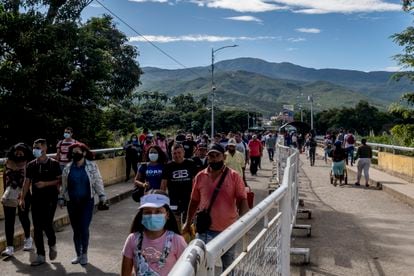
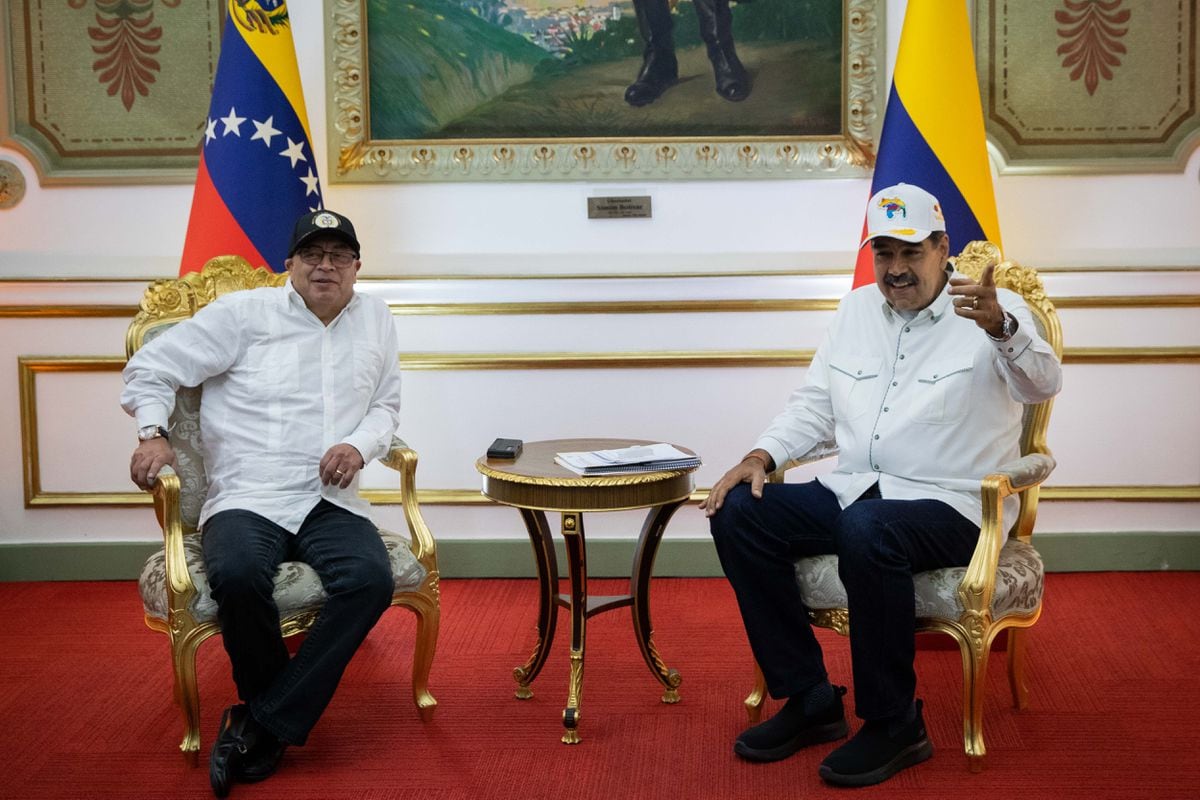
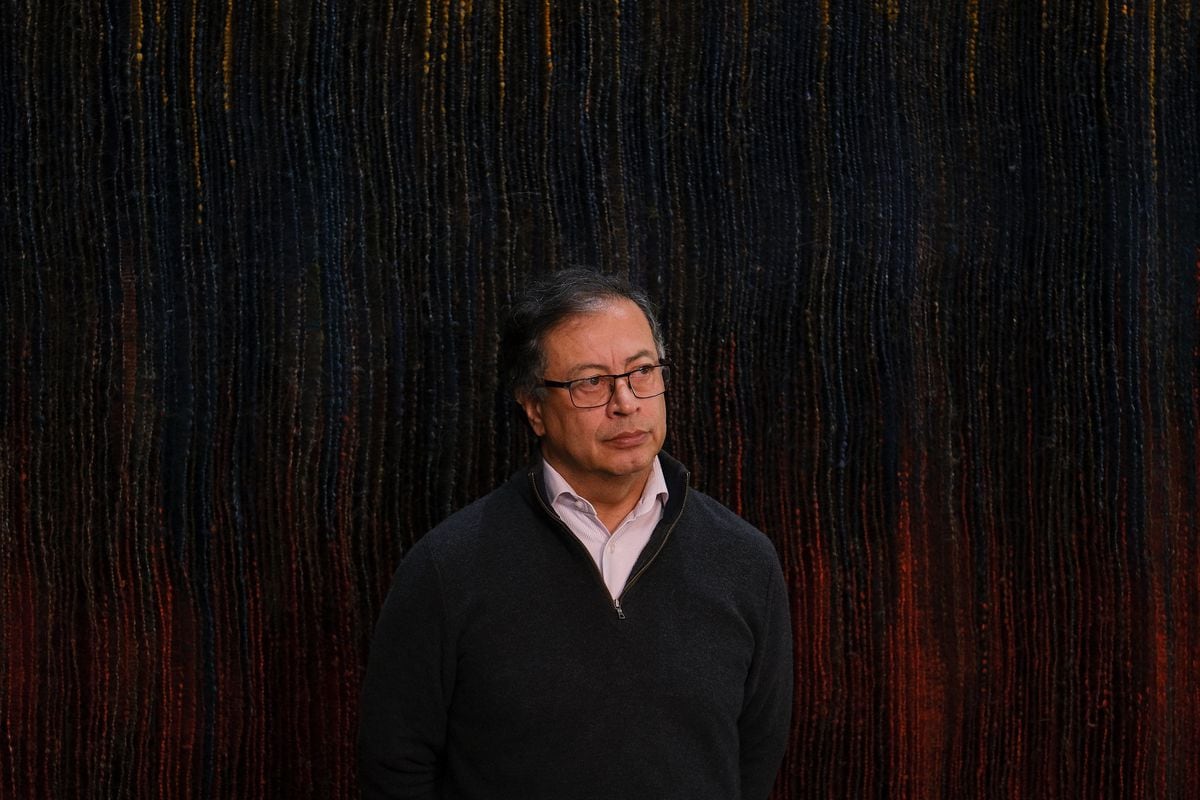

/cloudfront-eu-central-1.images.arcpublishing.com/prisa/66E5ZJUDZGT5AWIW7USKEZRE4A.jpg)

